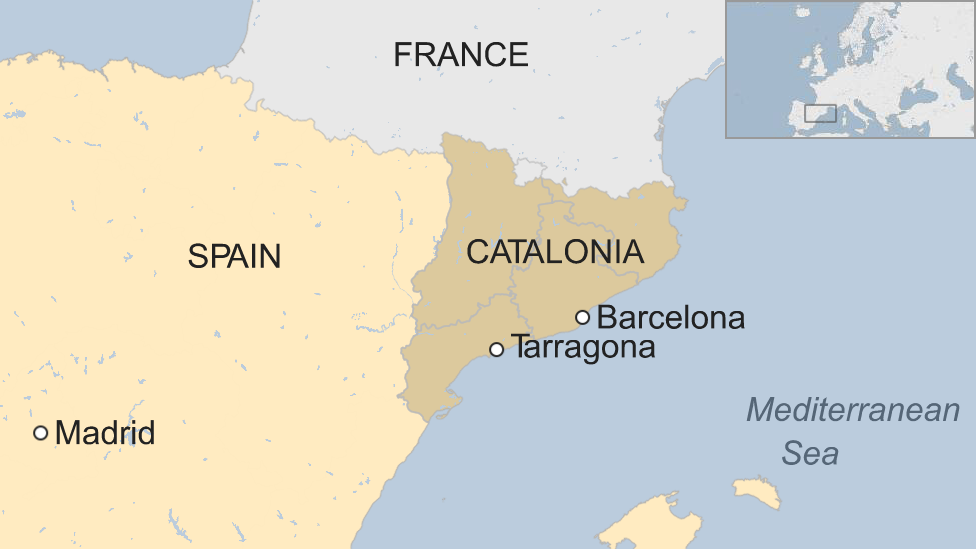Catalonia protests: Marches and general strike paralyse Barcelona
- Published
Barcelona suffered some of the worst street violence Spain has seen for decades
Fresh clashes between riot police and protesters have broken out in Barcelona amid anger over the jailing of Catalan separatist leaders.
A general strike was announced and five huge marches, all peaceful, converged on the city centre, bringing the streets to a standstill.
Police estimated that more than 500,000 people had joined Friday's rallies.
Protesters also blocked a motorway on the Spain-France border, causing huge tailbacks.
There were 17 arrests across the region on Friday, Spanish newspaper El País reported, and 62 people were injured - 41 of them in Barcelona.
Catalan regional leader Quim Torra thanked those who had demonstrated peacefully and criticised the rioters.
Tens of thousands joined a "Freedom March"
He said the sentences handed down to separatist leaders would not deter the campaign for independence.
"We'll return to the ballot box again on self-determination," he said.
Speaking in Brussels, acting Spanish Prime Minster Pedro Sánchez warned that those who caused disturbances would face justice.
"There is no space for impunity in relation to the serious acts of violence we have witnessed over recent days in different cities in Catalonia," he said.
Fernando Grande-Marlaska, Spain's acting interior minister, said there had been nearly 130 arrests since trouble broke out across Catalonia five days ago. He warned that rioters faced up to six years in prison.
What is the latest?
Masked protesters confronted officers near the national police headquarters in Barcelona late on Friday, throwing stones and cans at lines of officers in riot gear. Rubbish bins were dragged into the streets and set alight.
Police responded with tear gas, rubber bullets and water cannon, reports said.
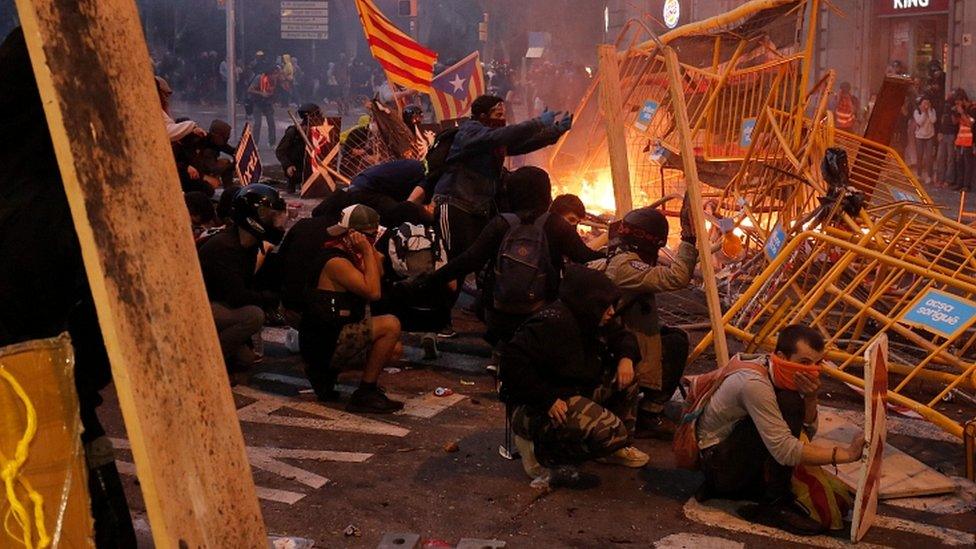
Some protesters set up barricades and confronted police
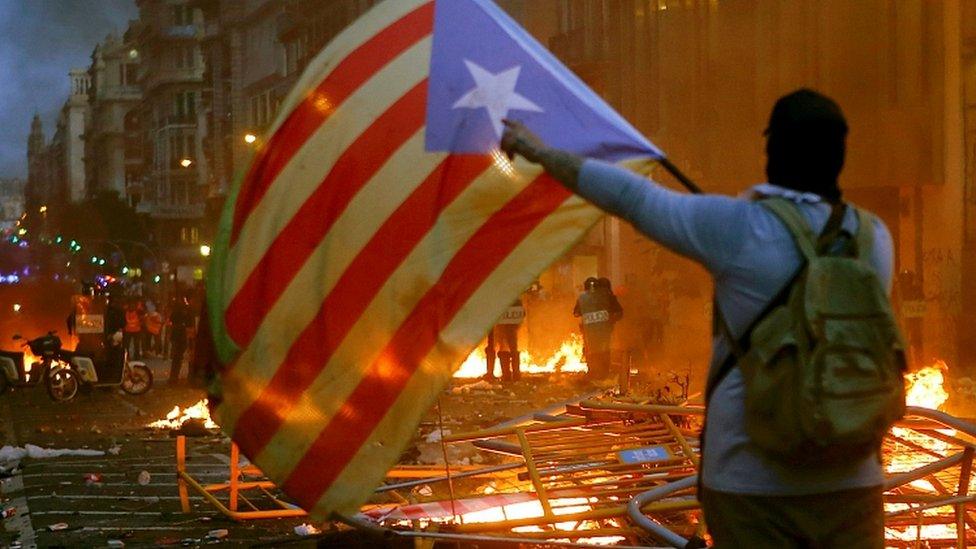
Spain's leaders say those responsible for violence will face justice
Further north, Catalan police closed the motorway at La Jonquera on the French border as about 200 protesters occupied the road. Demonstrators blocked at least 20 major roads across the region, reports said.
Earlier, Barcelona's Sagrada Familia church - one of the city's main tourist attractions - was closed after protesters blocked its entrance. In a statement posted on its official Twitter account, the church said a group of protesters was standing at the entrance and interfering with access to the interior.
Allow X content?
This article contains content provided by X. We ask for your permission before anything is loaded, as they may be using cookies and other technologies. You may want to read X’s cookie policy, external and privacy policy, external before accepting. To view this content choose ‘accept and continue’.

Meanwhile, Barcelona and Real Madrid football teams postponed a match they were due to play on 26 October.
The famous Spanish rivals had been set to meet in El Clásico - a hugely popular fixture due to be held at Barcelona's stadium - but postponed it because of fears of civil unrest.
Why are people protesting?
At least 96 people were hurt as the protests spread across Spain's north-eastern region.
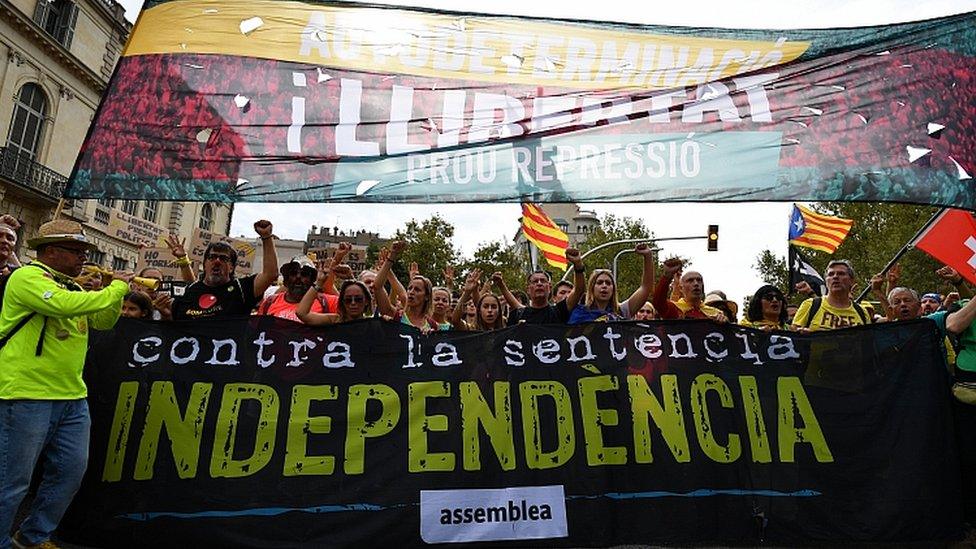
More than half a million people took part in the rallies
The separatists were convicted of sedition over their role in a 2017 referendum outlawed by the Spanish courts and a subsequent declaration of independence. Another three were found guilty of disobedience and fined but not jailed. All 12 defendants denied the charges.
Former Catalan President Carles Puigdemont is still wanted by the Spanish authorities for his role in the referendum. He currently resides in Belgium. If he returns to Spain, he will be arrested.
What is behind the Catalonia unrest?
Catalan nationalists have long complained that their region, which has a distinct history dating back almost 1,000 years, sends too much money to poorer parts of Spain via taxes which are controlled by Madrid.
The wealthy region is home to about 7.5 million people, with their own language, parliament, flag and anthem.
In September, a march in Barcelona in support of Catalonia's independence from Spain drew crowds of about 600,000 people - one of the lowest turnouts in the eight-year history of the annual rally.

- Published17 October 2019
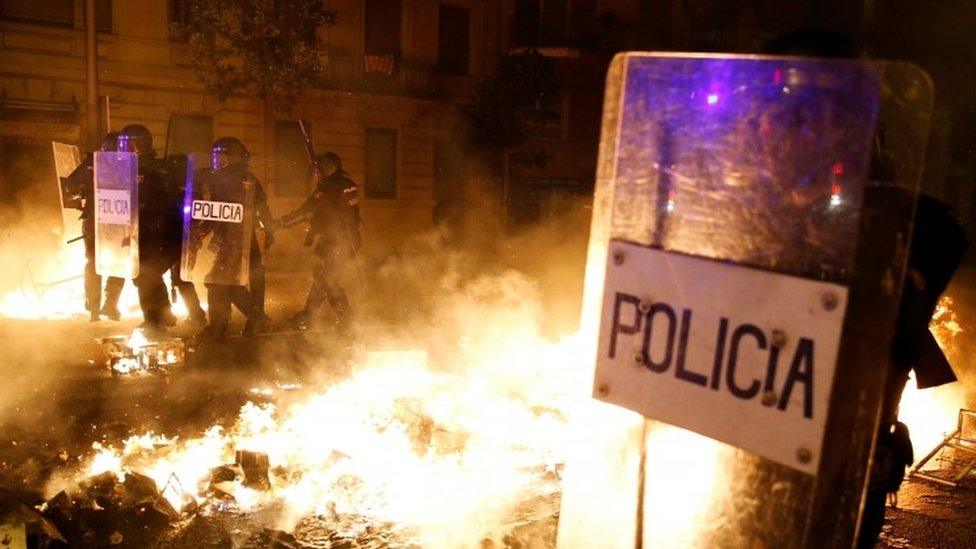
- Published8 June 2019
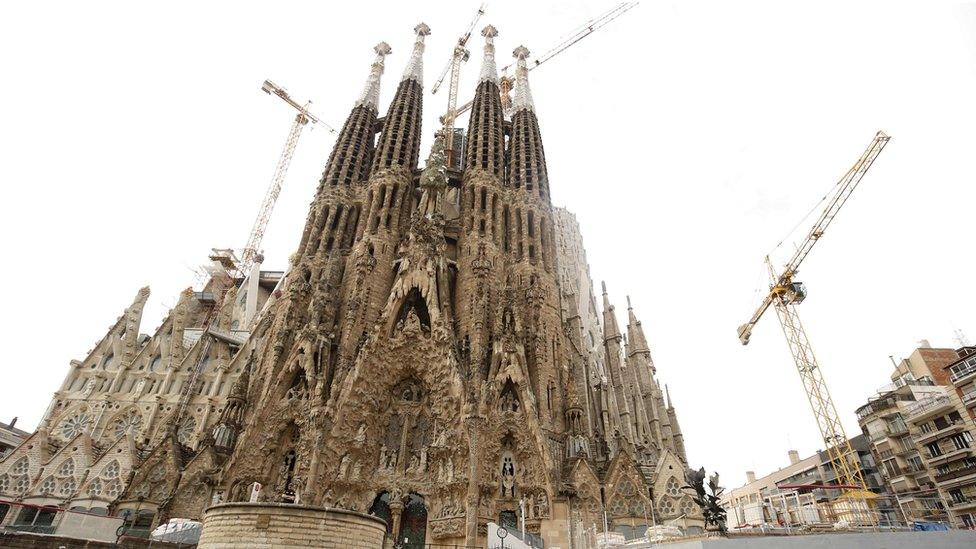
- Published15 October 2019
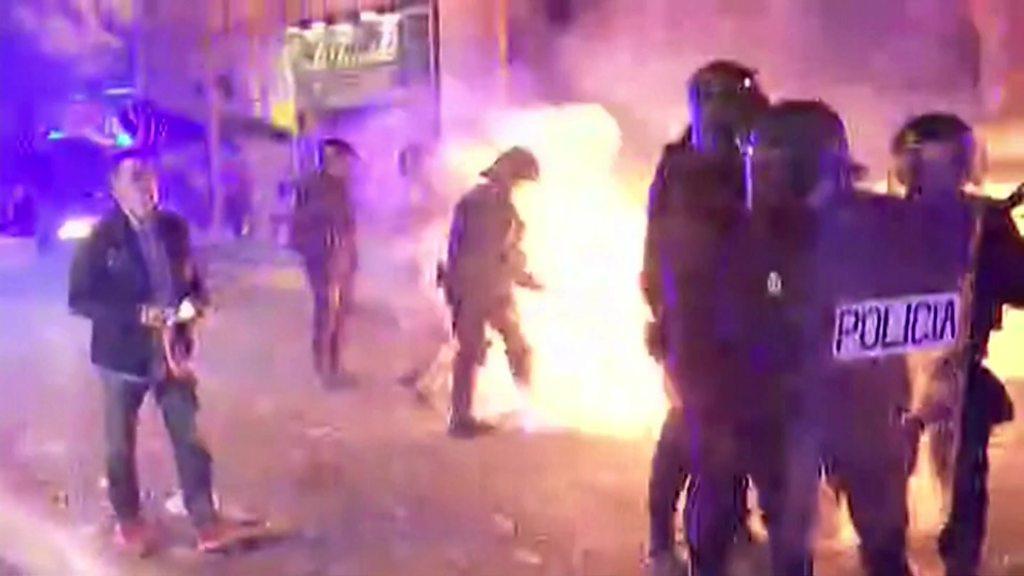
- Published14 October 2019
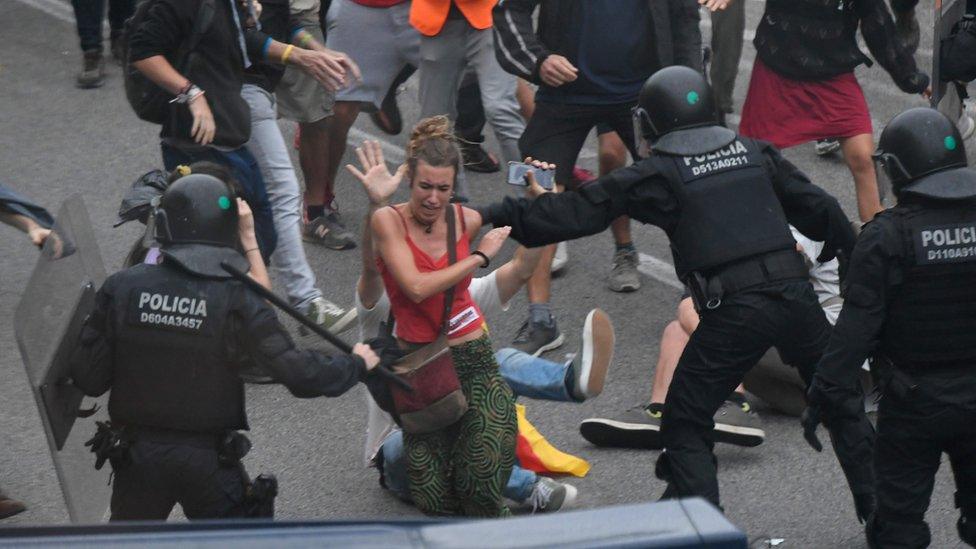
- Published14 October 2019
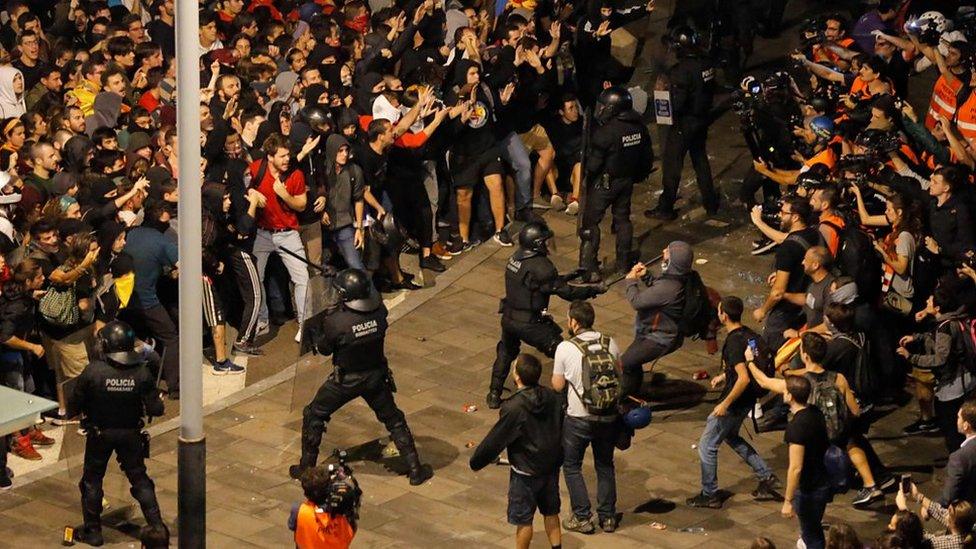
- Published26 March 2018
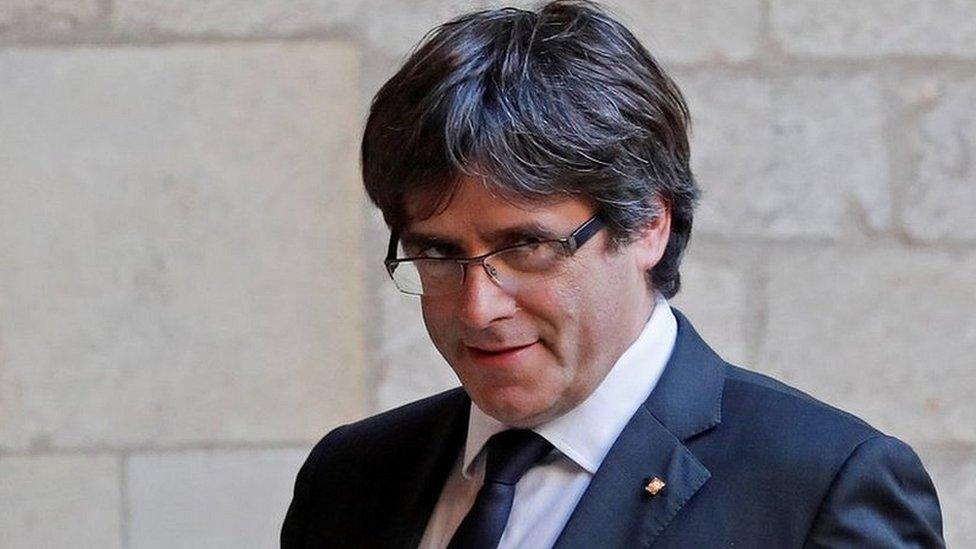
- Published21 August 2023
